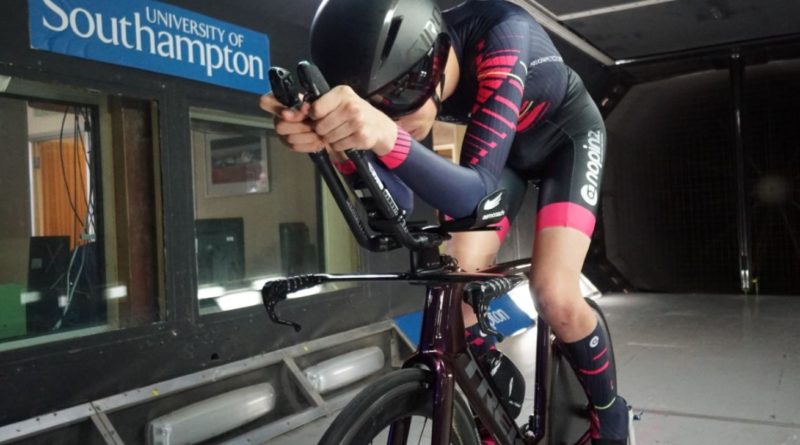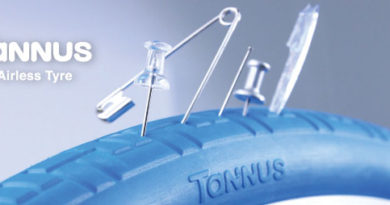Aerodynamics start up taking testing out of the wind tunnel and on to the road
A Brighton start up specialising in real-time aerodynamics and drag measurement technology will be funded by SPRINT cash; a pot typically reserved for commercial exploitation of space data and tech.
Crucially, Body Rocket’s aim is to develop a product that will be able to measure aerodynamic forces outside of the wind tunnel, potentially opening up aerodynamic testing to a wider audience, including enabling athletes to make improvements to their posture on a bicycle.
The hope is that, once fully developed, the device will be able to measure drag independently on the road, thus replicating the exact conditions a cyclist might experience during a race.
Eric DeGolier, Founder of Body Rocket said: “In many sports, like cycling, where aerodynamics is critical, the athlete’s body is a major contributor to drag. Measuring the effects changes in posture and technique have on aerodynamics while an athlete is competing is critical to improved performance.
“Body Rocket is committed to developing a method of measuring aerodynamic drag without reliance on a wind tunnel. We can achieve this by applying big data techniques used in industries such as motorsport, but needed technical expertise and equipment.
“By collaborating with the University of Southampton under the SPRINT programme, we have funded access to a great, specialist resource – a one-stop-shop for all of the expertise and facilities that we need for our product testing and validation, including state-of-the-art wind tunnel testing facilities on-site, credibility from previous testings, and research expertise in inertial navigation and sensor fusion algorithms.”
Body Rocket is now underway working with the University of Southampton to develop the unique aerodynamic drag meter for cyclists, among other athletes. The University, aside from helping develop the system, will independently validate the sensor technology for gravity sports and cycling use.
Initially the system will be tested alongside the RJ Mitchell Wind Tunnel at the University of Southampton; a facility that has been at the forefront of aerodynamic research for more than 30 years. It is used extensively, not only by the performance sport industry, but also industries including automotive, aerospace, and marine and maritime.
Dr Martyn Prince, Senior Research Engineer in Engineering and Physical Sciences at the University of Southampton added: “This multi-disciplinary approach brings together academics using Engineering techniques developed from aerodynamic testing of Olympic cyclists, with academics from Electronics and Computer Science, drawing on the expertise of Professor Eric Rogers, whose previous research on inertial navigation in space, combined with his expertise in using sensor fusion algorithms, gives him the specialised knowledge that Body Rocket requires.
“The SPRINT project funding enables us to combine our expertise and facilities developed in these different areas to support Body Rocket in their product development and validation.”
The SPRINT fund (SPace Research and Innovation Network for Technology) programme provides those backed with unprecedented access to Southampton University’s space expertise facilities.
Related: Industry veteran Tony Corke recently called on bike shops to start monetising aerodynamics as part of an in store service.



